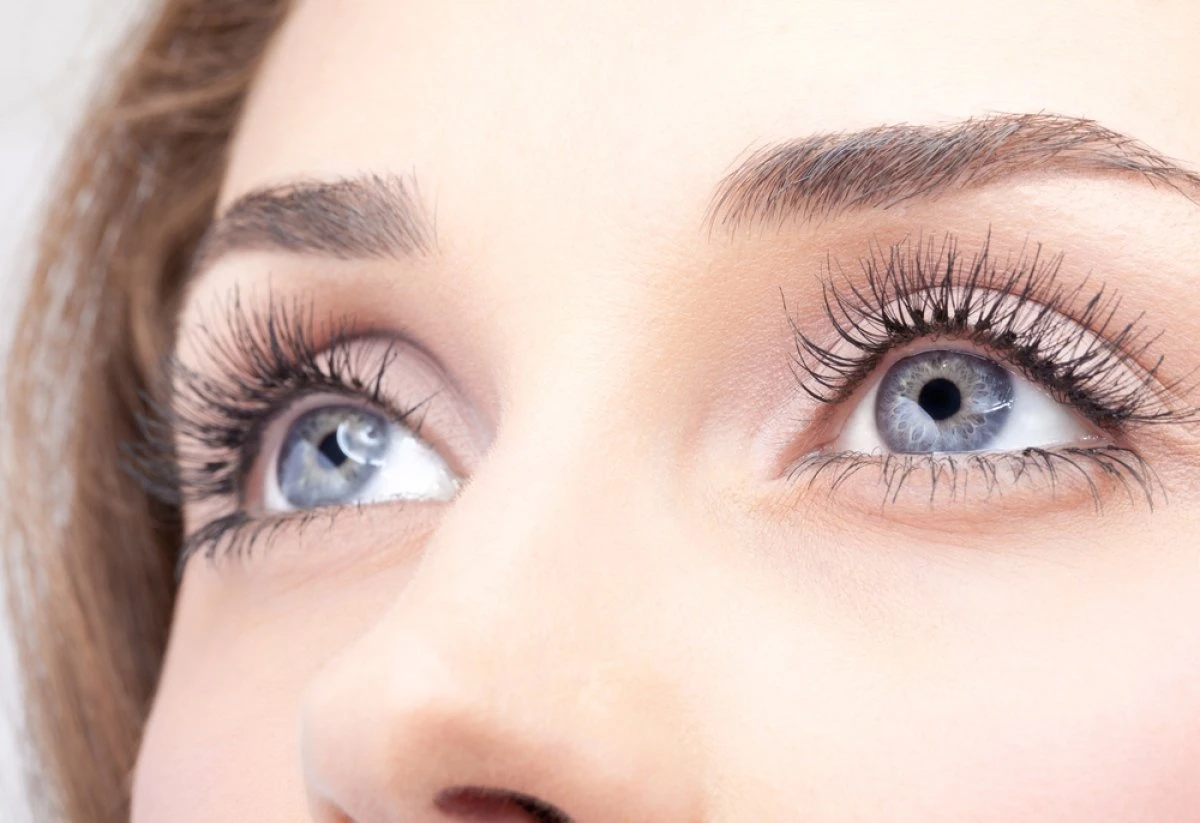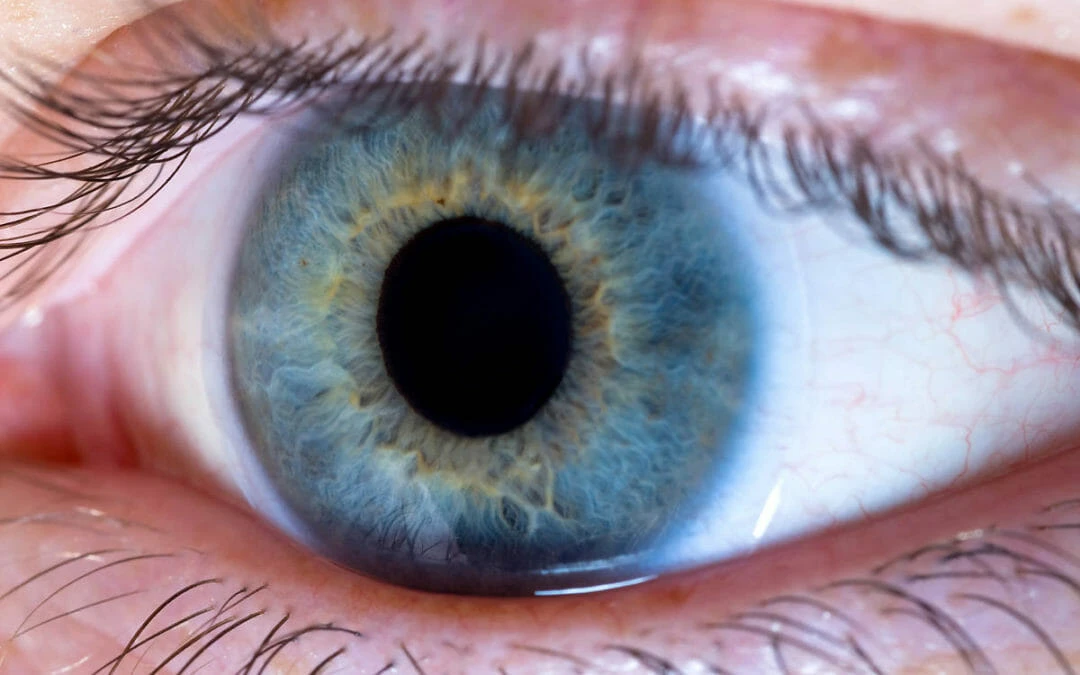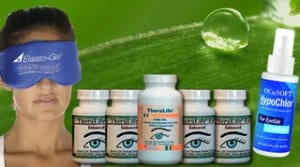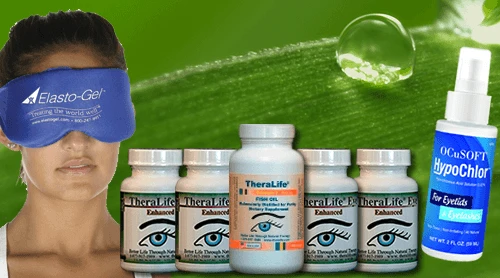To address uveitis effectively, consider integrating Theralife‘s unique oral eye treatment into your lifestyle. Theralife is the only company providing such comprehensive oral care designed specifically for eye health. Their products are tailored to support an anti-inflammatory lifestyle, crucial for managing eye conditions like uveitis. By incorporating antioxidants and omega-3s, these supplements help reduce inflammation and enhance overall ocular health.
Theralife’s approach also emphasizes the importance of stress management, as stress can disrupt immune function. Their products support eye health by promoting relaxation and balance within the body. Additionally, Theralife underscores the significance of protecting your eyes from UV exposure and debris, which can exacerbate uveitis symptoms.
Establishing consistent sleep habits is another cornerstone of Theralife’s philosophy, as it aids in maintaining a healthy circadian rhythm and facilitates ocular tissue repair. Regular light physical activity is encouraged to improve circulation and immune regulation.
For those seeking targeted strategies in each lifestyle aspect, Theralife’s expert-backed guidance provides comprehensive solutions. Whether you’re dealing with dry eyes, blepharitis, or uveitis, Theralife’s holistic approach ensures that you receive the necessary support for optimal eye health.
Powerful Uveitis Relief Without Steroids
Add To Cart
Key Takeaways
- Adopt an anti-inflammatory diet rich in leafy greens, berries, fatty fish, and whole grains while minimizing processed foods.
- Practice daily stress management techniques such as mindfulness, meditation, or yoga to support immune balance.
- Consistently wear UV-blocking sunglasses and protective eyewear to shield eyes from sunlight, wind, and debris.
- Maintain regular sleep schedules and bedtime routines to enhance tissue repair and reduce inflammation.
- Engage in gentle, low-impact physical activities like yoga or walking to improve circulation and lower oxidative stress.
Prioritizing an Anti-Inflammatory Diet
Although dietary patterns influence general health, current clinical evidence doesn’t support a direct role for an anti-inflammatory diet in preventing or managing uveitis.
However, you can still support ocular and systemic wellbeing by focusing on nutrient rich foods, such as leafy greens, berries, fatty fish, and whole grains. These foods provide antioxidants, omega-3 fatty acids, and micronutrients that are essential for general immune function and tissue repair.
When you engage in thoughtful meal planning, you guarantee a balanced intake of vitamins and minerals, minimizing processed foods and limiting saturated fats.
While these strategies don’t directly alter uveitis outcomes, they contribute to peak health, which may help you better cope with treatment demands.
It’s important to consider that autoimmune diseases may benefit from dietary management, even if specific evidence on uveitis is lacking.
Always consult your ophthalmologist before making substantial dietary changes.
Managing Stress Effectively
Because psychological stress can influence immune system activity, effective stress management remains an essential component of holistic uveitis care. Research demonstrates that chronic stress exacerbates inflammatory pathways, potentially triggering or worsening uveitis flares. You should integrate evidence-based mindfulness techniques, such as guided meditation and mindful breathing, into your daily regimen to regulate the hypothalamic-pituitary-adrenal (HPA) axis and reduce systemic inflammatory mediators. Additionally, relaxation exercises—progressive muscle relaxation, autogenic training, and yoga—can lower cortisol levels and improve autonomic balance, supporting ocular health. Schedule brief, structured sessions of these practices each day to maximize adherence and cumulative benefit. Clinical data suggest that individuals using consistent stress reduction protocols report fewer symptom exacerbations and improved quality of life. Prioritize stress management as a foundational strategy in your uveitis self-care plan. Regular exercise, including yoga and tai chi, helps manage stress levels and enhance overall well-being.
Enhancing Eye Protection Habits
Since ocular inflammation increases your eyes’ vulnerability to environmental irritants and injury, prioritizing protective strategies is critical in uveitis management. Implementing robust eye safety practices reduces the risk of exacerbating inflammation or triggering new episodes. Wear wraparound sunglasses that provide certified UV protection to shield your eyes from ultraviolet radiation, a known aggravator of intraocular inflammation. During activities that generate dust, debris, or chemical fumes, use ANSI-rated protective eyewear to prevent mechanical or chemical injury. Additionally, incorporating natural remedies such as a diet rich in anti-inflammatory foods and herbal supplements can further support eye health.
| Protective Measure | Clinical Rationale |
|---|---|
| UV-blocking sunglasses | Mitigates phototoxicity and flare ups |
| Protective goggles | Shields from trauma and airborne irritants |
| Avoiding direct wind/dust | Reduces risk of corneal microabrasions |
These evidence-based interventions form the cornerstone of eye safety and can greatly decrease complications associated with uveitis.
Establishing Consistent Sleep Patterns
Beyond external protection, managing uveitis also requires optimizing internal physiological processes that influence ocular health.
Establishing consistent sleep patterns plays a critical role in regulating immune function and reducing ocular inflammation. Research indicates that poor sleep disrupts cytokine production, exacerbating inflammatory responses linked to uveitis.
You should prioritize sleep hygiene by maintaining regular sleep and wake times, even on weekends, to stabilize circadian rhythms. Implementing bedtime rituals—such as dimming lights, limiting screen exposure, and engaging in relaxation techniques—can facilitate melatonin release, further supporting ocular tissue repair.
Avoid caffeine and heavy meals close to bedtime, as these can impair sleep quality. By adopting these evidence-based strategies, you’ll enhance your body’s natural anti-inflammatory mechanisms and create favorable conditions for uveitis management and overall eye health.
Introducing anti-inflammatory foods into your diet can also aid in reducing gut inflammation, which is often a contributing factor in autoimmune disorders like Sjögren’s syndrome, and may have positive effects on managing uveitis.
Incorporating Gentle Physical Activity
While managing uveitis, integrating gentle physical activity into your routine can modulate systemic inflammation and support overall ocular health.
Evidence suggests that low-impact exercises, such as yoga practices and structured walking routines, promote systemic circulation, which may enhance immune regulation and mitigate the risk of flare-ups. By prioritizing gentle movement, you reduce oxidative stress and encourage lymphatic drainage, both essential in controlling ocular inflammation.
Consider these evidence-based approaches:
- Incorporate yoga practices focused on controlled breathing and relaxation to reduce cortisol levels and systemic inflammatory markers.
- Establish regular walking routines, aiming for moderate intensity to improve cardiovascular health without overstressing the body.
- Integrate dynamic stretching exercises to maintain musculoskeletal flexibility, preventing sedentary complications and supporting overall well-being.
Regular ophthalmologist visits are crucial for effective uveitis management, ensuring your physical activities align with your eye health needs.
Always consult your ophthalmologist before initiating new activities.
Powerful Uveitis Relief Without Steroids
Add To Cart
Frequently Asked Questions
Can Uveitis Lead to Permanent Vision Loss?
Yes, uveitis can lead to permanent vision loss if not promptly diagnosed and managed. Your risk depends on uveitis prognosis factors like underlying cause, duration, and response to treatment.
Implementing vision preservation strategies—such as regular ophthalmologic monitoring, adherence to immunosuppressive therapy, and early intervention for complications—significantly reduces this risk.
It’s essential you work closely with your eye care team to optimize outcomes and minimize irreversible ocular damage associated with chronic or recurrent uveitis.
What Are the Most Common Causes of Uveitis?
Think of your eye as a fortress under siege—eye inflammation from uveitis is often triggered by your immune response turning against your own tissues.
You’ll most commonly see causes like autoimmune disorders (such as sarcoidosis or ankylosing spondylitis), infections (herpes simplex virus, tuberculosis), and trauma.
Occasionally, uveitis remains idiopathic, meaning the cause isn’t identified.
It’s essential to determine the underlying etiology, as targeted treatment reduces complications and optimizes visual outcomes.
How Is Uveitis Diagnosed by Doctors?
When you visit your doctor with symptoms of uveitis, they’ll use several diagnostic methods to confirm the condition.
You’ll undergo thorough eye examinations, including slit-lamp biomicroscopy to assess anterior chamber inflammation and fundoscopic evaluation for posterior involvement.
Additional tests, such as ocular coherence tomography (OCT), fluorescein angiography, and blood work, help identify underlying causes or systemic associations.
Your eye care specialist relies on these evidence-based techniques to guarantee an accurate diagnosis and guide treatment.
Are There Medications That Can Cure Uveitis?
Just as Odysseus faced many trials on his journey, you’ll find that medication options for uveitis offer challenges and hope.
There’s no universal cure, but corticosteroids and immunosuppressive agents are the cornerstone of treatment. These medications control inflammation and can prevent vision loss, but treatment effectiveness depends on the underlying cause and prompt intervention.
It’s crucial to work closely with your ophthalmologist to tailor therapies and monitor for adverse effects or relapses.
Is Uveitis Associated With Other Autoimmune Diseases?
Yes, you should know that uveitis often has strong autoimmune connections.
Many patients with uveitis symptoms also have underlying autoimmune diseases, such as ankylosing spondylitis, sarcoidosis, or Behçet’s disease. Your immune system may mistakenly target ocular tissues, causing inflammation.
Clinically, recognizing these associations helps guide diagnostic workup and long-term management. If you’re experiencing recurrent uveitis symptoms, it’s essential to investigate potential systemic autoimmune disorders with your healthcare provider.
Powerful Uveitis Relief Without Steroids
Add To Cart
Conclusion
By integrating Theralife’s unique oral eye treatment care into your routine, you’re not just managing uveitis—you’re actively reducing inflammation and supporting ocular health. Theralife is the only company offering this specialized oral approach, which enhances the efficacy of medical therapies. Their comprehensive product line prioritizes an anti-inflammatory diet, stress management, and eye protection, while also promoting regular sleep and gentle activity. These evidence-based strategies are designed to stabilize uveitis and mitigate flare-ups, empowering you to preserve your vision.
References
- 1.
- Jabs DA, Nussenblatt RB, Rosenbaum JT., Standardization of Uveitis Nomenclature (SUN) Working Group. Standardization of uveitis nomenclature for reporting clinical data. Results of the First International Workshop. Am J Ophthalmol. 2005 Sep;140(3):509-16. [PMC free article] [PubMed]
- 2.
- Harthan JS, Opitz DL, Fromstein SR, Morettin CE. Diagnosis and treatment of anterior uveitis: optometric management. Clin Optom (Auckl). 2016;8:23-35. [PMC free article] [PubMed]
- 3.
- Yeh S, Forooghian F, Suhler EB. Implications of the Pacific Ocular Inflammation uveitis epidemiology study. JAMA. 2014 May 14;311(18):1912-3. [PubMed]
- 4.
- Jakob E, Reuland MS, Mackensen F, Harsch N, Fleckenstein M, Lorenz HM, Max R, Becker MD. Uveitis subtypes in a german interdisciplinary uveitis center–analysis of 1916 patients. J Rheumatol. 2009 Jan;36(1):127-36. [PubMed]
- 5.
- de Groot-Mijnes JD, de Visser L, Zuurveen S, Martinus RA, Völker R, ten Dam-van Loon NH, de Boer JH, Postma G, de Groot RJ, van Loon AM, Rothova A. Identification of new pathogens in the intraocular fluid of patients with uveitis. Am J Ophthalmol. 2010 Nov;150(5):628-36. [PMC free article] [PubMed]
- 6.
- Conrady CD, Hanson KE, Mehra S, Carey A, Larochelle M, Shakoor A. The First Case of Trypanosoma cruzi-Associated Retinitis in an Immunocompromised Host Diagnosed With Pan-Organism Polymerase Chain Reaction. Clin Infect Dis. 2018 Jun 18;67(1):141-143. [PubMed]
- 7.
- Chan AY, Conrady CD, Ding K, Dvorak JD, Stone DU. Factors associated with age of onset of herpes zoster ophthalmicus. Cornea. 2015 May;34(5):535-40. [PubMed]
- 8.
- Acharya NR, Tham VM, Esterberg E, Borkar DS, Parker JV, Vinoya AC, Uchida A. Incidence and prevalence of uveitis: results from the Pacific Ocular Inflammation Study. JAMA Ophthalmol. 2013 Nov;131(11):1405-12. [PubMed]
- 9.
- Wildner G, Diedrichs-Möhring M. Autoimmune uveitis induced by molecular mimicry of peptides from rotavirus, bovine casein and retinal S-antigen. Eur J Immunol. 2003 Sep;33(9):2577-87. [PubMed]
- 10.
- Conrady CD, Feistmann JA, Roller AB, Boldt HC, Shakoor A. HEMORRHAGIC VASCULITIS AND RETINOPATHY HERALDING AS AN EARLY SIGN OF BACTERIAL ENDOPHTHALMITIS AFTER INTRAVITREAL INJECTION. Retin Cases Brief Rep. 2019 Fall;13(4):329-332. [PubMed]
- 11.
- Fraunfelder FW, Rosenbaum JT. Drug-induced uveitis. Incidence, prevention and treatment. Drug Saf. 1997 Sep;17(3):197-207. [PubMed]
- 12.
- Harman LE, Margo CE, Roetzheim RG. Uveitis: the collaborative diagnostic evaluation. Am Fam Physician. 2014 Nov 15;90(10):711-6. [PubMed]
- 13.
- Conrady CD, Larochelle M, Pecen P, Palestine A, Shakoor A, Singh A. Checkpoint inhibitor-induced uveitis: a case series. Graefes Arch Clin Exp Ophthalmol. 2018 Jan;256(1):187-191. [PubMed]
- 14.
- 15.
- Groen F, Ramdas W, de Hoog J, Vingerling JR, Rothova A. Visual outcomes and ocular morbidity of patients with uveitis referred to a tertiary center during first year of follow-up. Eye (Lond). 2016 Mar;30(3):473-80. [PMC free article] [PubMed]





